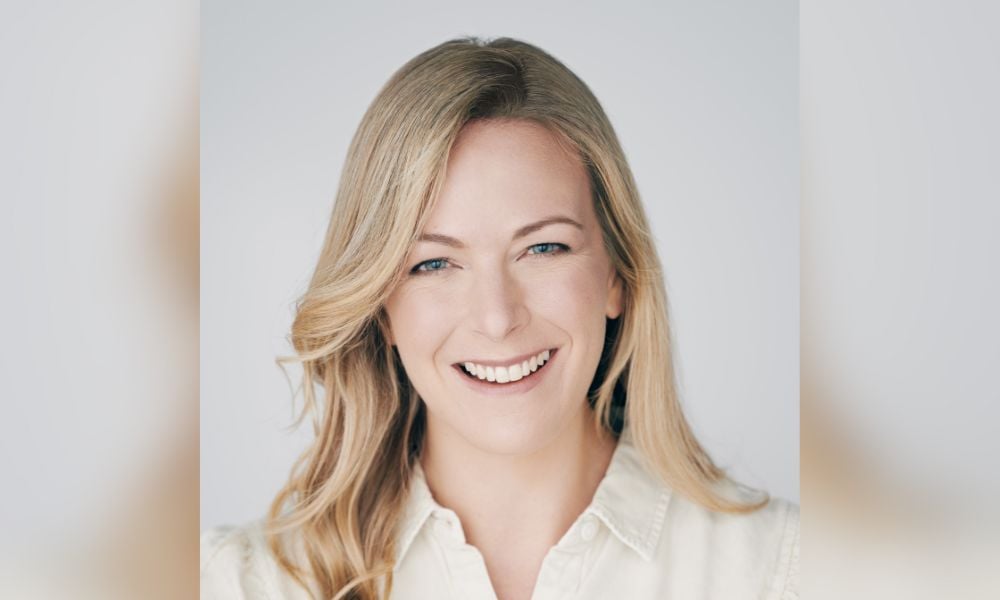

Cameron Rogers’ career in finance didn’t start with a job title, it started with a bank account at age eight.
Armed with lemonade stand profits and her grandparents’ $2 bills, she walked into a dark-wood-paneled bank branch with her mother, signed her name on oversized paperwork, and learned the quiet magic of compound interest.
“Every month I’d get my savings statement and see the deposits grow without having done anything,” Rogers recalls. “That was astounding to me.”
She has been sharing with InvestmentNews how those early experiences, coupled with parents who talked openly about both the opportunities and the tensions money can bring, gave her a head start in the industry in which she has climbed the often-challenging career ladder to leadership.
“I credit my parents,” she says. “They were very focused on creating an awareness of money early on.”
Rogers has carried that mindset from Georgetown’s student-run credit union to JP Morgan during the global financial crisis, and now to her role as partner at Angeles Wealth Management, summing up her rise in three words: “Curiosity, technicality, and relationships.”
The curiosity was there from high school, when she enrolled in community college economics classes. The technicality came from navigating “a crash course in risk, illiquidity, and macro volatility” in 2008. But relationships have proven to be her defining edge.
“What earns a client’s trust isn’t jargon,” she says. “It’s empathy. It’s clarity. It’s showing up with consistency.”
Her career hasn’t been a smooth path though. She admits that early on, she stayed in the institutional space too long, mistaking market stagnation for personal shortcomings.
“I believed that loyalty and grit would unlock opportunity,” Rogers says. “But it became apparent that new wealth was being created every day in the individual space, and that was where I could have the most impact.”
She’s also learned the hard way about overextending for clients.
“In the beginning, you try to be everything to everyone. You take on every client, even those who operate differently from you,” she says. “I don’t know how you avoid that early on unless you’re handed a book of business, but with maturity, you learn the importance of fit.”
One of her biggest pieces of advice is deceptively simple: document your wins.
“As you’re progressing, jot it down,” she urges. “When you need to advocate for yourself, it’s much easier to have a running list than to dig back through a year’s worth of emails.”
On the much-discussed Great Wealth Transfer, Rogers warns against oversimplifying.
“It’s not women sitting here, open hands, with cash falling out of the sky,” she notes. “The largest portions of wealth are in real estate, private businesses, securities, and pensions—complex assets that require negotiation and strategy.”
She sees the bigger challenge as preparing the industry for more women across the table in these transactions.
“What staffing exists today, and what staffing needs to exist in the future? That’s the more interesting conversation,” she says.
Ultimately, Rogers believes the profession is ripe for more women, not just to serve female clients, but because the skills they often bring are exactly what the future demands.
“Women are so good at context, nuance, and care,” she says. “This should be very much a profession for women, because those are the qualities that will set great advisers apart.”
From the little girl in the too-big chair at the bank to a partner shaping conversations about the future of wealth, Rogers’ path proves that credentials matter, but connection matters more.
“Power capital moves through networks,” she says. “Historically, those networks have included fewer women. We need to change that, structurally, not just symbolically.”

Emerson Equity and its advisor, Tony Barouti, were likely the largest sellers of defunct GWG L bonds.

Stan Gregor, Chairman & CEO of Summit Financial Holdings, explores how RIAs can meet growing demand for family office-style services among mass affluent clients through tax-first planning, technology, and collaboration—positioning firms for long-term success

Chris Vizzi, Co-Founder & Partner of South Coast Investment Advisors, LLC, shares how 2025 estate tax changes—$13.99M per person—offer more than tax savings. Learn how to pass on purpose, values, and vision to unite generations and give wealth lasting meaning

Experts flag potential risks for seniors as headline readings for July obscure higher jumps in key price categories.

The President's comments on social media came after analysts sounded notes of caution on the impact on consumer prices.
Stan Gregor, Chairman & CEO of Summit Financial Holdings, explores how RIAs can meet growing demand for family office-style services among mass affluent clients through tax-first planning, technology, and collaboration—positioning firms for long-term success
Chris Vizzi, Co-Founder & Partner of South Coast Investment Advisors, LLC, shares how 2025 estate tax changes—$13.99M per person—offer more than tax savings. Learn how to pass on purpose, values, and vision to unite generations and give wealth lasting meaning
